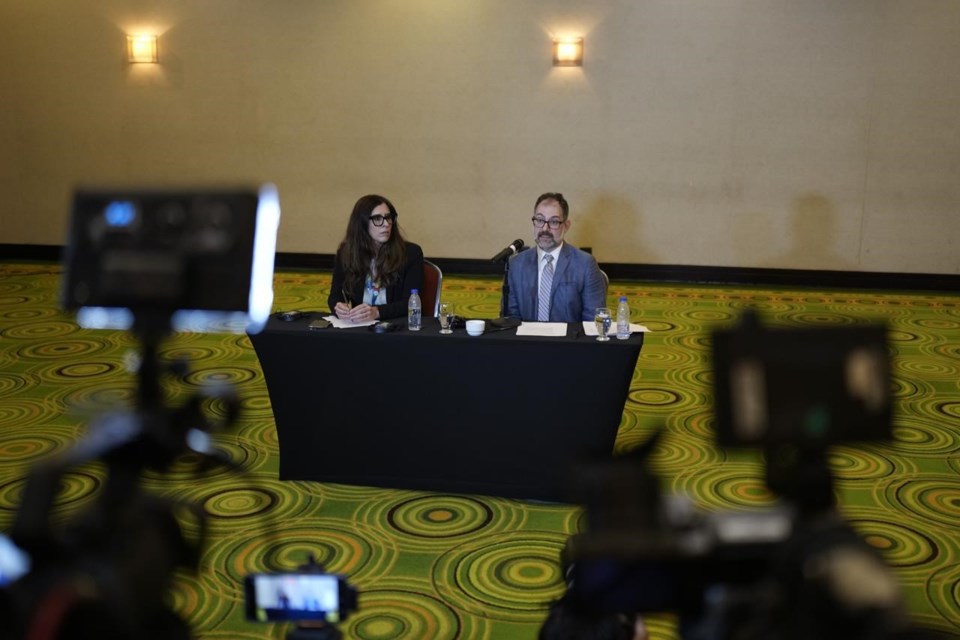CARACAS, Venezuela (AP) — A United Nations-backed expert on food security on Wednesday urged Venezuela’s government to develop a robust plan to address hunger and malnutrition affecting its population, and called for an end to the crippling economic sanctions imposed on the South American country.
Michael Fakhri, U.N. special rapporteur on the right to food, acknowledged progress made by the government of President Nicolás Maduro in recent years to address food insecurity, including its effort to boost local production of food. But at the end of a 14-day visit across the country, he told reporters that the root causes of hunger and malnutrition have not been addressed.
He said social programs created in response to severe food shortages have morphed into “charitable handouts” and have become “susceptible to patronage.”
“Food is an expression of love,” Fakhri said after highlighting the role of food in carnival celebrations, which coincided with this visit. “But love with hunger does not last. I learned that in Venezuela. Hunger is insidious. Hunger is not a member of this political party or that political party."
Fakhri told reporters he witnessed first-hand how economic sanctions have “constrained the government’s fiscal ability” to implement social programs and deliver public services. Their impact, he said, has been felt disproportionately by the poor.
Maduro's government has long denounced sanctions, the most crippling of which were imposed after his 2018 re-election. But, Fakhri said, sanctions are not the only cause behind malnutrition. Corruption, lack of transparency, and the lack of enforcement of existing legislation have also played a role.
Venezuela’s complex social, economic and political crisis has driven more than 7.4 million people to migrate and pushed millions of others into poverty. Food insecurity has been a deciding factor for many migrants.
Fakhri's visit comes as Venezuela’s protracted crisis continues to evolve. Gone are the empty grocery store shelves that marked the initial years of Venezuela’s complex crisis. Stores these days carry varieties of olive oils and even imported ice creams. Supply issues have been replaced by affordability ones.
The average public employee earns a minimum wage of about $3.60 plus bonuses of around $100 every month , while private sector workers make $202 a month on average. Neither is enough to buy food for a family of four. At the same time, people, particularly in rural areas, must cope with gasoline rationing, roads in poor condition and other transportation challenges that limit their ability to reach markets, grocery stores and other food supplies.
“Venezuela’s best bet is to empower peasants, fishers, pastoralists, ranchers, urban and peri-urban farmers — especially women and Indigenous and Afro-descendant peoples,” Fakhri said. “Not only will that enhance food sovereignty, but it will also improve local livelihoods.”
____
Follow AP’s coverage of Latin America and the Caribbean at https://apnews.com/hub/latin-america
Regina Garcia Cano, The Associated Press


